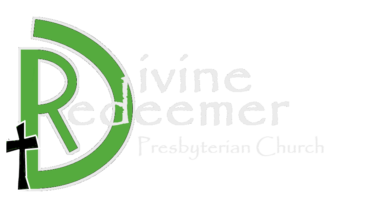
At age 16 I had a powerful and life-rearranging conversion to Christ.. I gave myself and my future to God at the altar of my best friend’s Pentecostal church. Seeking fellowship, I attended my girlfriend’s Evangelical Free Church youth group and started opening the scripture with studies produced by the Navigators. These fellowships instilled in me a desire to devour the scripture, and steeped me in a doctrine of biblical inerrancy. I swallowed it; I believed in it. I developed such a fanatical daily discipline of reading and studying the Word that my parents worried I had joined a cult! The essential meaning and purpose of the scripture they told me was to lead us to personal salvation. At the time, it was powerful and animating message for me.
In college, I joined the Intervarsity Christian Fellowship, continued with a Navigators men’s study, and joined an ad hoc Tuesday night prayer group. The prayer group was wildly ecumenical—Greek Orthodox, Catholic, Evangelical, Baptist, non-denoms, and mainline traditions were all represented. We would pray, share, and discuss our faith lives. The deep relationships I developed with Christians of varying perspectives opened me up to new ways of looking at scripture, among other things. My friend, Matt English, a deep root Presbyterian, introduced me to the persistent thread through scripture that presents the divine imperative for justice. This thread expressed a concern for collective salvation, more than personal salvation, and viewed God’s activity as transformative of society and not simply of individuals.
InterVarsity introduced me to Ron Sider’s Rich Christians in an Age of Hunger, a book that turned my world on its head! For the first time I began to understand that the Kingdom of God was not just about me and Jesus, but about how the world around us should look. Another friend introduced me to Sojourners magazine, the reflections of justice oriented evangelicals in inner city Washington, D.C. Sojourners helped me build bridges between these two often opposing theological camps.
I read biblical scholarship from a historical critical perspective. In my Sociology of Religion class I read Peter Berger’s The Sacred Canopy, and discovered how we set up certain unassailable truths to act as a canopy of meaning over us, while in reality, all of those ‘unassailable truths’ can be critiqued and even changed. This discovery began to pry open the rigid frameworks I had inherited from the more conservative influences and prepared the way for a significant shift in my view of scripture and how it acquires authority.
My seminary education helped me to identify and appreciate the diversity of voices within the scriptures, and to allow them to critique one another. Biblical inerrancy no longer worked for me. Gospel parallels revealed the many differences in gospel details, and I learned that factual historicity was not the dominant concern of gospel authors, rather the effort to communicate meaning was central. The Bible became a library of books assembled by diverse writers over thousands of years. These writings were shaped by their particular places and times in history. Still ‘inspired’ by the Spirit of God, but not dictated word by word, detail by detail. Marcus Borg helped me realize that a story could still convey truth and meaning without being factual.
My most challenging hurdle during seminary was the exclusive claim by many in the Christina faith, the notion that salvation is only through Jesus. Today, I have a completely different understanding of certain “exclusivist scriptures.” When Jesus says, “I am the Way, the Truth, and the Life, no one comes to the Father except through me.” I believe he invites us into the pattern of death and resurrection he exemplified. Jesus’ “Way” is the surrendering our ego, a dying to self, so we may discover our unity with others in God for an abundant new life.
I have encountered this wholeness in other people of profound faith who do not share my same tradition, but with whom I now enjoy a rich dialog about what it takes to be whole in God. I am enriched by interfaith conversations that at an earlier time would have simply been arguments in an attempt to convert the other person to my way. The writings of Thich Nhat Hanh, Anthony de Mello, Thomas Merton, John Phillip Newell and Richard Rohr, helped me build bridges between my tradition other faiths. They speak a language I can understand.
Today when uncertainties or challenges to my understanding of God, arise I delight in the opportunity to be stretched into new understandings of God. Together with Meister Eckhart “I pray to God to be rid of God” because every attempt I make to understand God is flawed and limited, so I must forever open myself to the God I don’t yet know or understand. And so, my journey continues!
